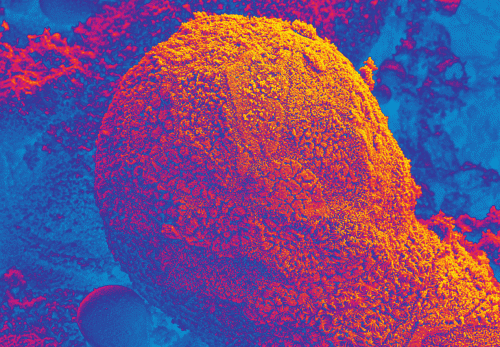Overview
EpiIntestinal™ is known as a human 3D in vitro small intestinal tissue model with epithelial polarity to assess metabolism, toxicity, drug absorption, and compound efficacy. The new invention of MatTek’s novel is to help reevaluate gastrointestinal preclinical testing.
The 3D tissue model of the human small intestine from MatTek is progressing in vitro GI research throughout the world. Enabling physiological exposures and human-relevant endpoints, EpiIntestinal is being integrated into pharmaceutical development and microbiome discovery programs across the globe.
Key features
- Highly differentiated, physiologically appropriate
- Comes with multiple donors
- Epithelial polarity
- Delivered user-friendly and simple-to-use
Technology

Image Credit: MatTek

Image Credit: MatTek
The EpiIntestinal tissue model (SMI-100) provides several benefits versus presently available preclinical testing models like Caco-2. The human cell-based 3D model integrates paneth cells, tuft cells, enterocytes, M cells, and intestinal stem cells into a highly differentiated and polarized epithelium.
The EpiIntestinalFT tissue (SMI-100-FT) consists of a basic lamina propria consisting of normal human intestinal fibroblasts and is beneficial to study inflammation, wound repair, fibrosis, and innate immune responses.
Both tissues have been cultured at the air-liquid interface (ALI) to enable physiological (luminal) exposure conditions. EpiIntestinal tends to recapitulate any ideas of normal intestinal function like metabolism, barrier, inflammatory, and toxicity responses, which is quite similar to native human intestinal tissue.

Image Credit: MatTek
Significant features of EpiIntestinal consist of the existence of functional tight junctions and brush borders at the apical tissue surface. In vivo, brush borders are in direct contact with luminal contents and consist of a minimum of 19 drug transporters and 22 metabolic enzymes. EpiIntestinal tight junctions and brush borders mimic human physiology and structure.

Image Credit: MatTek
Human applicable data in a high-throughput in vitro tissue model.
Human relevance
in vitro Human intestinal tissue model to evaluate and anticipate drug induced-GI damage.

Image Credit: MatTek
Applications
On a regular basis, the EpiIntestinal 3D human tissue model has been used for screening pharmaceuticals for a variety of endpoints such as GI toxicity and inflammation, drug permeation, drug metabolism, fibrosis, and intestinal infection. Often, direct protocols and the assessment of early molecular and cellular endpoints enable researchers to obtain data in days, not weeks or months.
GI toxicity
Use EpiIntestinal for a highly predictive assay to evaluate GI toxicity of pharmaceuticals.
Inflammation and fibrosis
Utilize EpiIntestinal’s highly controlled in vitro culture conditions to study intestinal inflammation, wound repair, and fibrosis, and assess therapeutic effects.
Drug delivery and metabolism
Utilize EpiIntestinal for highly predictive and human-relevant drug delivery. Evaluate API bioavailability (influx) and efflux transport, drug metabolism, and drug-drug interactions.
It is possible for EpiIntestinal to be co-cultured with other physiological systems (for example, liver cells) in microfluidic systems to analyze the effect of drug metabolites on GI toxicity or to anticipate drug permeation/absorption through the so-called “luminal” side of the tissue.
Wound repair/epithelial restitution
Users can make use of the EpiIntestinalFT to gain better insights into the mechanisms of wound healing in the gut and to assess therapeutic effects.
Intestinal infection
Make use of the EpiIntestinal to study host-pathogen interactions, GI tract infection, and innate immune responses.